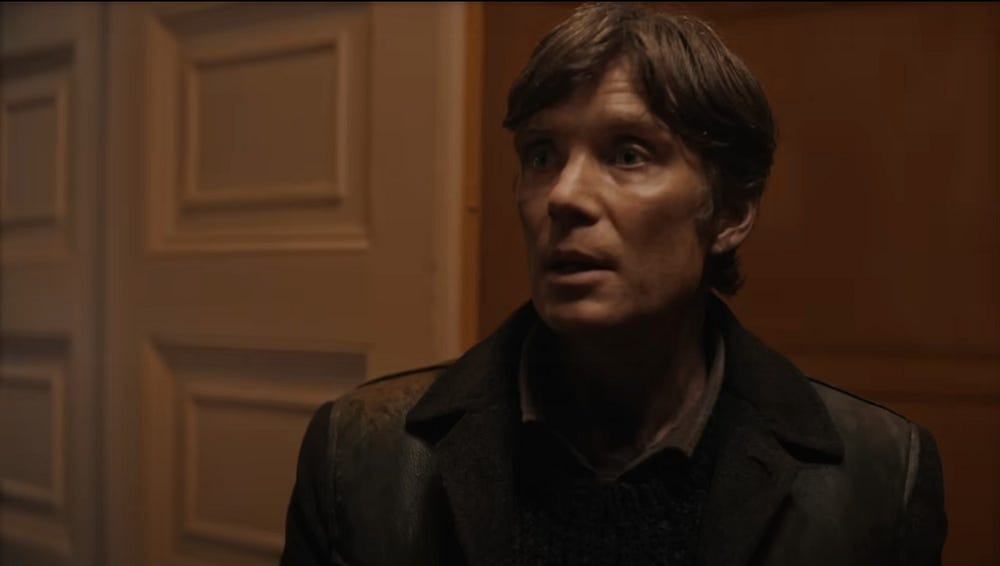Film Review - Small Things Like These
Cillian Murphy's understated but haunting performance anchors this quietly powerful adaptation of Claire Keegan's novel
Along with The Magdalene Sisters (2002) and Philomena (2013), Small Things Like These completes what I’m calling my Magdalene Laundries Outrage trilogy. These institutions operated in Ireland until (astonishingly) the late 1990s. They were run by Catholic nuns for “wayward” young women, forced to give up their babies for adoption, and then treated with Dickensian cruelty in a catalogue of well-documented physical, psychological, and sexual abuse.
If The Magdalene Sisters dealt with the experience of being in one of those places (it’s fictional but based on four testimonies from the 1998 documentary Sex in a Cold Climate), and Philomena (a true story) dealt with their traumatic aftermath and legacy, then Small Things Like These, based on Claire Keegan’s novel, deals with those who stood by and looked the other way, as well as those who made a small difference for the better any way they could. The protagonist of this story, quiet, kindly coal merchant Bill Furlong (Cillian Murphy), is unsettled by what he witnesses when making deliveries to one of these laundries in the town of New Ross, during the run-up to Christmas of 1985.
Bill is doing all right in his business, with his wife Eileen (Eileen Walsh) keen that he count his blessings and not make things difficult for himself and their five daughters in their tight-knit community. The nuns who run the laundries also run the highly esteemed school that Bill’s daughters attend, for one thing. For another, as Bill is warned by the owner of a local pub, the nuns have their fingers in many pies. If he stirs up trouble, he could find himself ostracised.
But despite being told by Eileen that he must look the other way sometimes to get on in life, Bill remains troubled. This is partly because of his own traumatic past (as revealed in flashbacks). Can he stand by, despite the evidence of his own eyes, and ignore what is happening? Will he do the Christ-like thing when all around him (including the nuns) are doing the exact opposite?
Although it might prove too low-key for some audiences, this powerful slow-burn of a film has stayed with me. Cillian Murphy’s subtle, understated, haunting central performance is the main reason. He is quite remarkable at conveying exactly what his character thinks and feels through minuscule nuances of body language, facial expressions, and those incredible eyes. One moment in particular is a stand-out, in which Sister Mary (a chilling Emily Watson), the nun in charge of the laundry, tries to invent a fiction about what Bill has just witnessed, then essentially offers him a bribe. Nothing is stated outright, but the scene is an acting masterclass in conveying meaning through subtext. As such, it’s one of the most intense scenes I’ve witnessed all year. Those nuns come across more like mob bosses than anything, and Bill’s fear of them is entirely understandable.
Director Tim Mielants and cinematographer Frank van den Eeden conjure a vivid atmosphere throughout. The film is immersive in its dark and grimy aesthetic, like the coal shovelled and delivered by its protagonist. Scenes of Bill wandering lonely, rainy streets bathed in orange streetlight feel shiveringly real. Even the relative light and warmth of Bill’s home are claustrophobic; his good fortune in comparison with others akin to walls slowly closing in amid his crisis of conscience.
Enda Walsh’s screenplay wisely keeps the dialogue to a minimum, allowing the audience to experience the silent unease of Bill’s predicament. Other cast members, including Michelle Fairley and Helen Behan, provide strong support in minor roles, and Senjan Jansen contributes a spare but emotive score. Again, I should stress this won’t be for everyone. Those looking for action or scenery-chewing melodrama are better off giving this a wide berth.
However, those with a penchant for unassuming drama that gradually gets under the skin, or anyone interested in the subject matter, will find Small Things Like These a quiet but powerful piece of work. It leaves the viewer outraged and sorrowful, but not without a glimmer of hope. The title has a deft double meaning, referring both to what characters in this story urge Bill to ignore and to the good that can be done to make small differences in bleak circumstances.
(Originally published at Medium.)
The Dillon Empire beyond Substack
For a full list of my published novels, click click here.
For more on my novels and other fiction projects, click here.
For my Patreon page, click here.
For my Medium page, click here.





